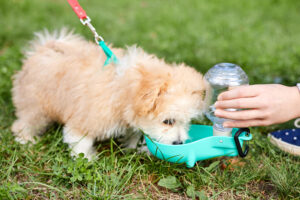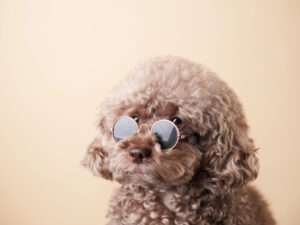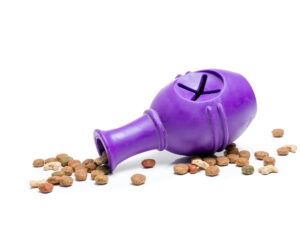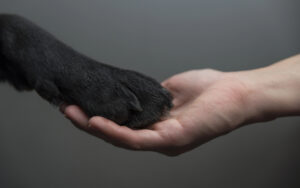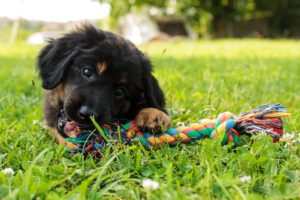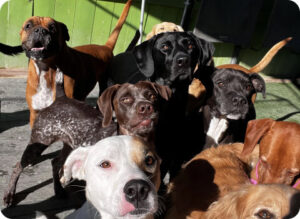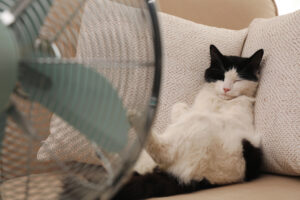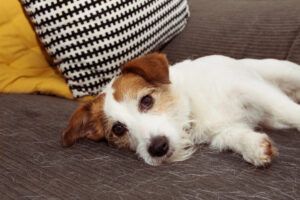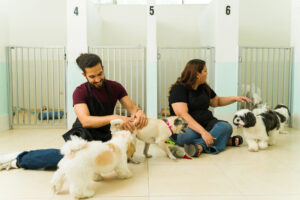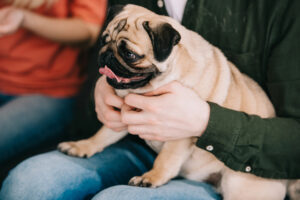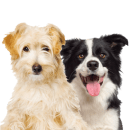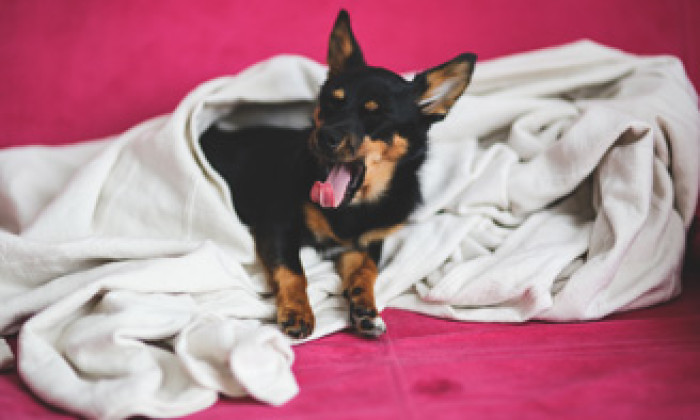 Oh, puppies. Those adorable little wet noses. Those cute wagging tails. And oh yeah, those razor-sharp teeth! Dogs’ baby teeth might be tiny, but they’re surprisingly strong. Puppies tend to experience the world through their mouths, tasting everything that comes their way (whether or not it’s edible) and playing with those little jaws wide open. While a little nip here and there from a young dog might not sound like a big deal, don’t forget that that little puppy is going to grow up to be an adult dog. For your safety and for others’, you do not want a dog that bites. What can you do to stop this habit?
Oh, puppies. Those adorable little wet noses. Those cute wagging tails. And oh yeah, those razor-sharp teeth! Dogs’ baby teeth might be tiny, but they’re surprisingly strong. Puppies tend to experience the world through their mouths, tasting everything that comes their way (whether or not it’s edible) and playing with those little jaws wide open. While a little nip here and there from a young dog might not sound like a big deal, don’t forget that that little puppy is going to grow up to be an adult dog. For your safety and for others’, you do not want a dog that bites. What can you do to stop this habit?
When you first bring your puppy home, biting usually isn’t a problem as your little one is too busy getting acclimated to his new surroundings. Once he’s made the adjustment though, biting starts again. It’s what puppies are used to—that’s how they played with their littermates (and climbed around on their mom). Your house isn’t full of other puppies though—you’ve got human hands and feet, curtains, pant legs, and more, and you don’t want your puppy biting any of it.
One method of deterring biting is to react to it as another puppy would, letting out a sharp yip or yelp when your puppy bites you. It’s the puppy equivalent of yelling “Uncle!”, the same way one of his littermates would react if play got too rough. If the puppy stops biting, praise with petting or a treat.
Though that method works for mild biters, for many it’s not enough. Another option—which is also helpful for deterring chewing—is to redirect the puppy’s attention. When your puppy bites, say “no” in a firm, clear voice, but then give the puppy a toy to bite or gnaw on. Once you’ve done this a few times, you may be able to transition to simply showing the puppy the toy to get him to stop biting and take the toy instead. Yes, it means carrying around a chew toy at all times, but if you have a puppy, chances are you’re doing that anyway!
What should you not do? One, never ever hit your puppy. Two, discourage aggressive play. Stick to cooperative games like fetch rather than dominance-based games like tug-of-war. Third, make sure that your puppy always has options for chewing and playtime. Puppies have lots of energy, and different toys help them to release some of it as well as keeping them from becoming bored (a major but often overlooked element in destructive canine behavior). Especially once they’re teething, your puppy is going to be looking for stuff to chew—having dog toys around ensures that it’s those that get chewed up, not your shoes.
If you want to nip biting in the bud, or if you want help with any aspect of puppy training, the professionals at Fon Jon Pet Care Center can help. Call us at 858-753-9892 to learn more about our dog training courses.






